I guess every family has its own pitfalls. Children struggling with relative traumas, short or long stories of deprivation, various intensities of shadows shed by guilt, or a need to identify culprits and assign blame. Putting on show well-anchored souvenirs to support and explain today’s shortcomings and hang-ups. Most of us attached to a discourse whose main purpose is to communicate the idea of a uniqueness about some past pain. Competing for the privilege of having suffered more or differently than others. Our narratives reinforced by an urgency to justify the current state of our selfhood.
Being taught it’s all about attitudes and perception. Having to decide once and for all if we’re on the side of those who see the glass as half empty, or on the side of those who’ll say it’s half full. As if determining the pessimistic/optimistic nature of our emotional foundation could introduce changes in the quantity of water contained in the glass. As if the accuracy of the information that’s processed by our senses could depend on the words we select to render these mental impressions. Trying to convince ourselves that modifying vocabulary will suffice, that adapting our values so that they can run along a scale of lexical appreciation will allow us to bear quality judgments about reality. Trained at confusing words with what they’re supposed to stand for. At not listening to what we’re saying and the way we’re saying it. Thinking that a particular enunciation of our awareness shapes how we should feel about it, even molds it. Decisions to confer degrees of qualitative characteristics to our experiences, recording them through a specific language that has the mission of defining for the world our temperamental inclinations.
It has nothing to do with the water in the glass. On the contrary, it’s just another form of creative accounting, banking on hypothetical future earnings, on what does not exist, at least not yet, and may not even ever be. Considering potentialities as the assets we can now rely on. The benefits of the correct phraseology ready to service us in the present. Completely oblivious to the real amount of water available to quench our thirst.
Of course, no one escapes subjectivity. We’re always caught in instinctive maneuvers to worsen or embellish the facts, because our priorities and goals fluctuate with each new context. This is not what I’m talking about. Don’t get me wrong. I’m referring here to the opinionated stance we are led to develop through our handling of terminology, so to meet expectations relative to the deployment of our personality.
For some the glass is half empty, for others it’s half full. Try to say, around the dinner table, it’s five ounces, and see what happens. Watch the faces. You’ve introduced imbalance. Created a vertiginous free fall. Inspired by a problematic glossary, you’ve positioned exchanges over an abyss. You’ve taken away from interlocutors the grounds conversations are built upon. They won’t know what to say next. Not because the data’s incorrect, but because it does not describe who you are in terms that can draw an image of your relationship to happiness or suffering. They’re not interested in evaluating the amount of water, they’re interested in evaluating you.
As they discuss their attitudes under the cover of the material world, they’re judging your politics. You’re readiness to accept the witchcraft befalling words, that which is able to transform your connection to people and things into a fictitious feature. The one you desire, positive or negative.
They cannot envision a relationship to the world that would be neither, outside this duality. That a link can materialize itself without your idiosyncrasy being dragged into it. Or, to be more exact, your idiosyncrasy being just that, a sustained effort at good diction.
I mean, if there’s one liter of water in the pitcher, the only evaluation that makes sense, the sole decision that has a purpose I can grasp and therefore can care about, both concern the question whether that quantity is sufficient for the number of guests present. Any statement about attitudes and perceptions, is the pitcher half empty or half full, is totally irrelevant.
This is why I’m awkward at conversations. Usually, I can’t stand their directions, the badly veiled hints aimed at revealing one’s condition without truly admitting doing so. Pretending to talk about this when in fact we’re talking about that. Predictable, limited, unsurprising, most of the time inevitable. And in the boredom I feel, the only light is the water begging to be measured. That is absolutely interesting. Like the entire day I spent as a child trying to count the number of drops that could fit inside a cup. Basically unable to count properly, but determined to solve the mystery. That’s something. Although hard to fit in a conversation.
If you have an expression about THE drop that makes the liquid overflow to refer to an incident that is just too much, THE thing that may catapult a situation into total disarray, you better know the precise number of drops that can lead you to this regrettable situation. And we should be talking about possible solutions, like getting in time a larger container. That’s a very stimulating discussion to have.
If one little drop can generate a catastrophe, isn’t it important to pick words appropriate to the nature of the danger?
I worked very hard at doing that, because I thought it was what needed to be done. And I went wrong. People rarely want to hear that. So, I guess, I’ll continue sounding like a fool. But I’ll keep on trying not to affirm the glass is half full or half empty. A serious matter of linguistics and ethics. And to those who may think that the approach sounds disincarnated, they reveal how little they know about poetry. A meaningful rhyme is like a geometry theorem. As beautiful, as logically structured and presented, as solid and eternal, as powerful and significant as a well-articulated demonstration.
Does that make any sense, have I erred beyond what's been said about me? My head so often described as half empty, therefore, I presume, half full?
But of what exactly, may I ask?
For I need the info to select the gauge.
Laolao
Being taught it’s all about attitudes and perception. Having to decide once and for all if we’re on the side of those who see the glass as half empty, or on the side of those who’ll say it’s half full. As if determining the pessimistic/optimistic nature of our emotional foundation could introduce changes in the quantity of water contained in the glass. As if the accuracy of the information that’s processed by our senses could depend on the words we select to render these mental impressions. Trying to convince ourselves that modifying vocabulary will suffice, that adapting our values so that they can run along a scale of lexical appreciation will allow us to bear quality judgments about reality. Trained at confusing words with what they’re supposed to stand for. At not listening to what we’re saying and the way we’re saying it. Thinking that a particular enunciation of our awareness shapes how we should feel about it, even molds it. Decisions to confer degrees of qualitative characteristics to our experiences, recording them through a specific language that has the mission of defining for the world our temperamental inclinations.
It has nothing to do with the water in the glass. On the contrary, it’s just another form of creative accounting, banking on hypothetical future earnings, on what does not exist, at least not yet, and may not even ever be. Considering potentialities as the assets we can now rely on. The benefits of the correct phraseology ready to service us in the present. Completely oblivious to the real amount of water available to quench our thirst.
Of course, no one escapes subjectivity. We’re always caught in instinctive maneuvers to worsen or embellish the facts, because our priorities and goals fluctuate with each new context. This is not what I’m talking about. Don’t get me wrong. I’m referring here to the opinionated stance we are led to develop through our handling of terminology, so to meet expectations relative to the deployment of our personality.
For some the glass is half empty, for others it’s half full. Try to say, around the dinner table, it’s five ounces, and see what happens. Watch the faces. You’ve introduced imbalance. Created a vertiginous free fall. Inspired by a problematic glossary, you’ve positioned exchanges over an abyss. You’ve taken away from interlocutors the grounds conversations are built upon. They won’t know what to say next. Not because the data’s incorrect, but because it does not describe who you are in terms that can draw an image of your relationship to happiness or suffering. They’re not interested in evaluating the amount of water, they’re interested in evaluating you.
As they discuss their attitudes under the cover of the material world, they’re judging your politics. You’re readiness to accept the witchcraft befalling words, that which is able to transform your connection to people and things into a fictitious feature. The one you desire, positive or negative.
They cannot envision a relationship to the world that would be neither, outside this duality. That a link can materialize itself without your idiosyncrasy being dragged into it. Or, to be more exact, your idiosyncrasy being just that, a sustained effort at good diction.
I mean, if there’s one liter of water in the pitcher, the only evaluation that makes sense, the sole decision that has a purpose I can grasp and therefore can care about, both concern the question whether that quantity is sufficient for the number of guests present. Any statement about attitudes and perceptions, is the pitcher half empty or half full, is totally irrelevant.
This is why I’m awkward at conversations. Usually, I can’t stand their directions, the badly veiled hints aimed at revealing one’s condition without truly admitting doing so. Pretending to talk about this when in fact we’re talking about that. Predictable, limited, unsurprising, most of the time inevitable. And in the boredom I feel, the only light is the water begging to be measured. That is absolutely interesting. Like the entire day I spent as a child trying to count the number of drops that could fit inside a cup. Basically unable to count properly, but determined to solve the mystery. That’s something. Although hard to fit in a conversation.
If you have an expression about THE drop that makes the liquid overflow to refer to an incident that is just too much, THE thing that may catapult a situation into total disarray, you better know the precise number of drops that can lead you to this regrettable situation. And we should be talking about possible solutions, like getting in time a larger container. That’s a very stimulating discussion to have.
If one little drop can generate a catastrophe, isn’t it important to pick words appropriate to the nature of the danger?
I worked very hard at doing that, because I thought it was what needed to be done. And I went wrong. People rarely want to hear that. So, I guess, I’ll continue sounding like a fool. But I’ll keep on trying not to affirm the glass is half full or half empty. A serious matter of linguistics and ethics. And to those who may think that the approach sounds disincarnated, they reveal how little they know about poetry. A meaningful rhyme is like a geometry theorem. As beautiful, as logically structured and presented, as solid and eternal, as powerful and significant as a well-articulated demonstration.
Does that make any sense, have I erred beyond what's been said about me? My head so often described as half empty, therefore, I presume, half full?
But of what exactly, may I ask?
For I need the info to select the gauge.
Laolao






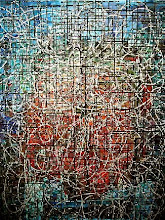
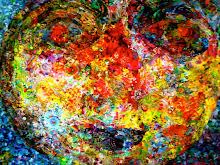





.jpg)
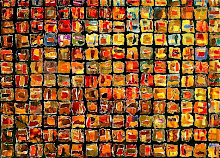
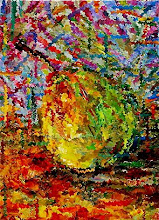


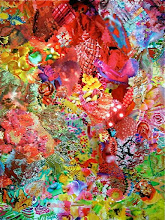
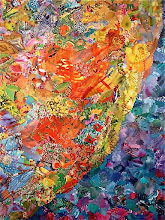
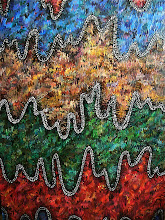
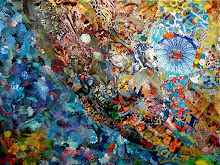

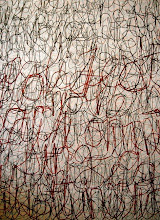
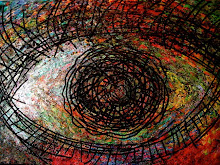
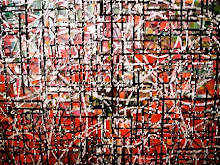

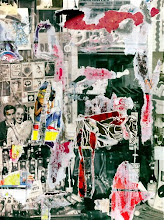
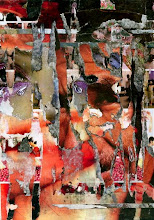
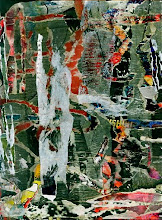
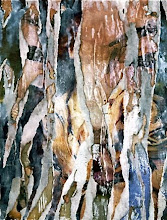


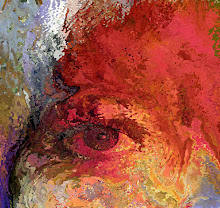
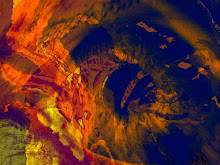

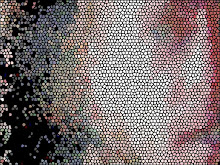.jpg)


.jpg)

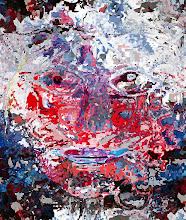

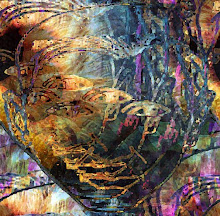


photo+album).jpg)
.jpg)
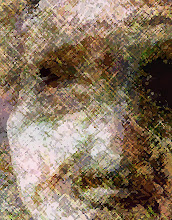
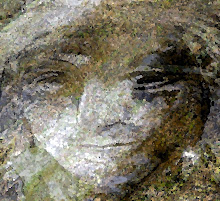








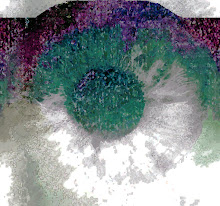
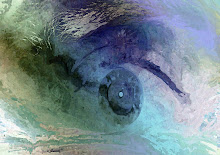




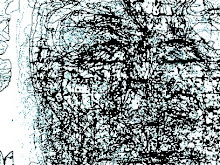.jpg)


No comments:
Post a Comment